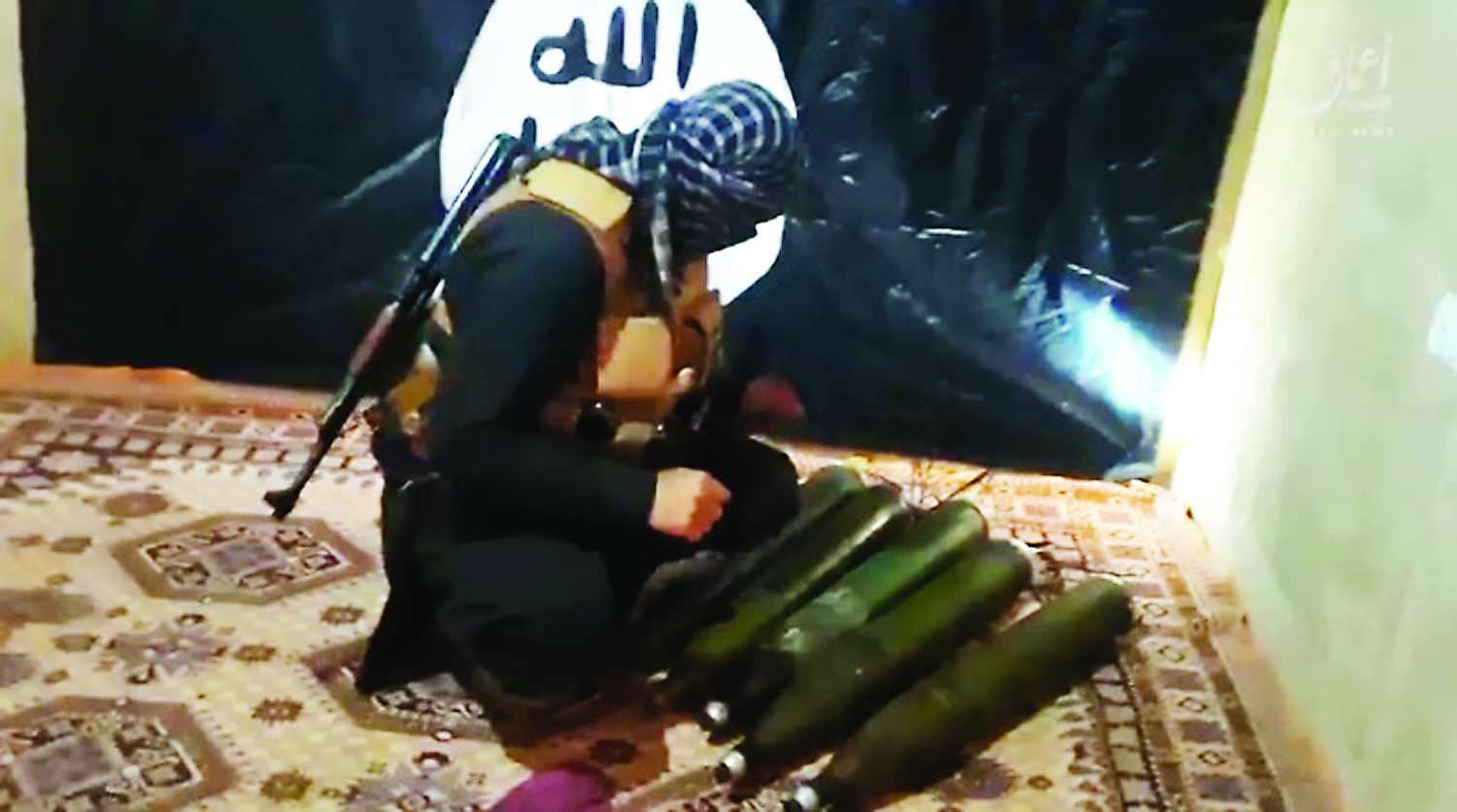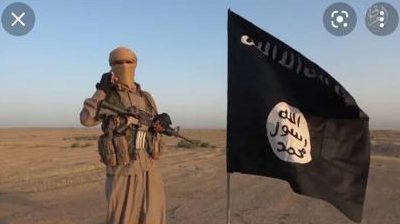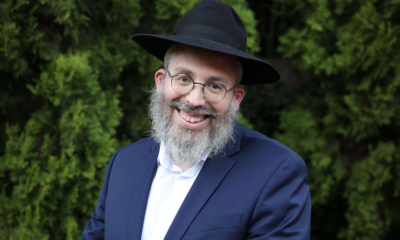
Featured Item

ISIS training camps in our backyard
Following the police raid in Kliprivier two weeks ago that may have uncovered a Gauteng-based terrorist cell linked to ISIS (Islamic State), the question remains if there are similar cells or training camps in South Africa.
According to experts speaking on the SA Jewish Report’s recent webinar exploring ISIS in Africa, such training camps do exist, but not in the form we think.
“Training camps may take on many different forms, as it may be a house or smallholding or farm that may be used as a training camp. The government admitted as far back as 2007 that there might be training camps in South Africa. The fact that these reports keep on resurfacing raises a red flag,” says Willem Els, senior training co-ordinator at the Institute for Security Studies (ISS) in Pretoria.
“Conditions in South Africa are conducive for radical groups to move and operate due to the policies adhered to by government. The return of several foreign-trained fighters has been facilitated by the government, and our intelligence and security apparatus doesn’t have the capacity to effectively monitor these individuals,” he says.
An article written by his colleague, Albertus Schoeman, consultant, transnational threats and international crime division of the ISS, confirms the possibility of training camps in the country. “In 2007, Nazier Desai and cleric Ahmed Sadek Desai were accused, respectively, of running and financing a training camp outside Port Elizabeth. The head of the National Intelligence Co-ordinating Committee at the time, Barry Gilder, conceded that there could be training camps operating in South Africa,” he wrote.
“Government responses to reports of training camps and terrorist financing have provided little clarity. Further, some matters have been dealt with in secret. The extent of the threat, however, remains murky. What can be agreed on is that more transparency and better communication from the government is necessary.”
The concern becomes even greater when considering the growing strength of ISIS-linked groups in Mozambique, and their seizing of a port in the far northern town of Mocimboa da Praia last week. “The capture of the town of Mocimboa da Praia and the strategic port is significant. It’s a very strategic port as it’s the lifeline for supplies and equipment to the liquefied natural gas project on the Afungi Peninsula,” says Els.
“ISIS not only occupied the port and town, but also all the strategic towns and settlements as well as the access routes to the port. It has sent a clear message to the government and the region that it’s a force to be reckoned with and that it’s now a very important player in the arena. The longer it manages to entrench itself and occupy the port, the stronger its position will get. The way it planned and executed the attack demonstrates superior military skills, planning, and training. It will take a massive and well-coordinated effort to recapture the port.”
Jevon Greenblatt, the head of operations at the Community Security Organisation (CSO) in Gauteng, agrees that it’s worrying. “For the first time in the history of our region, this highly destructive and radical ideology has an established base in southern Africa. This is a significant shift in the status quo and a massive leap forward in the sophistication and scale of the insurgency,” he says.
“If South Africa, through its military, actively gets involved [in fighting the ISIS insurgency in Mozambique’s Cabo Delgado province], we will no longer be looked on as a neutral party and will become a legitimate target for ISIS and its adherents or supporters. Although we have already seen a number of ISIS-linked or inspired plots and attacks in South Africa over the past few years, this could exacerbate and accelerate further attacks,” Greenblatt says. The Jewish community could be a vulnerable target for such attacks.
ISIS may rely on South Africans who radicalise in training camps to carry out such attacks. “There have been numerous reports and rumours of training camps over the years, and I have no doubt that much of this is true. We do, however, need to redefine what exactly is meant by a training camp in today’s context,” says Greenblatt.
“Although the possibility exists that there are still some traditional training camps somewhere on a farm where a group of ‘students’ learn the skills of terrorism, I think it’s much more prevalent that a group of like-minded individuals get together in an apartment, a garden, or some other private place to share ideas and discuss and practice skills, techniques, and tactics that they have learned and read about on the internet.
“There is more than enough training material, how-to manuals, and videos readily available to anyone who is looking. Another rumoured possibility is that individuals or groups partake in activities such as paintball games to hone their skills and learn their trade in an environment that will not raise eyebrows or draw attention.”
Ryan Cummings, the director for Africa-focused political and security risk-management consultancy Signal Risk, says, “‘Training camp’ is an emotive term with connotations of a more formal, co-ordinated, and organised event. However, ISIS is so successful because it extends its reach online, allowing people to ‘self-radicalise’ to become a ‘lone wolf’ attacker or ‘soldier of the caliphate’. So a ‘training camp’ would be through this use of online material and training. These home-based training camps are not unique to South Africa, and are the model ISIS uses to radicalise supporters to become operational the world over.”
The state’s ability to intervene in such informal training is extremely limited. “It’s difficult because it has to uphold people’s rights to freedom of information, freedom of religion, and so on. A government that places restrictions on internet usage or monitors individuals from a particular ethnic group could be accused of discrimination or becoming a surveillance state,” he says.
“If there was a history of co-ordinated attacks in South Africa, it could be possible [to place surveillance on such groups], but we don’t have that history. In addition, we have a population very sensitive to discrimination. The only way to counter such ‘training camps’ would be to fight them with a counter narrative to dilute the messaging or stop the progression to extremism. Also, in South Africa we’re talking about a very small percentage of the population, and if the government rolled out such campaigns, it could have the opposite effect and pique interest. Engaging with Muslim leadership could be another means to present a different narrative.
“South Africans ‘training’ alone or in groups may join forces, and individuals who want to become radicalised will always find a way,” says Cummings. “For the government, it’s a complicated process of building up enough evidence to avoid being accused of being Islamophobic or discriminatory. So, South Africa has to be sensitive in how it pursues such cases.”










